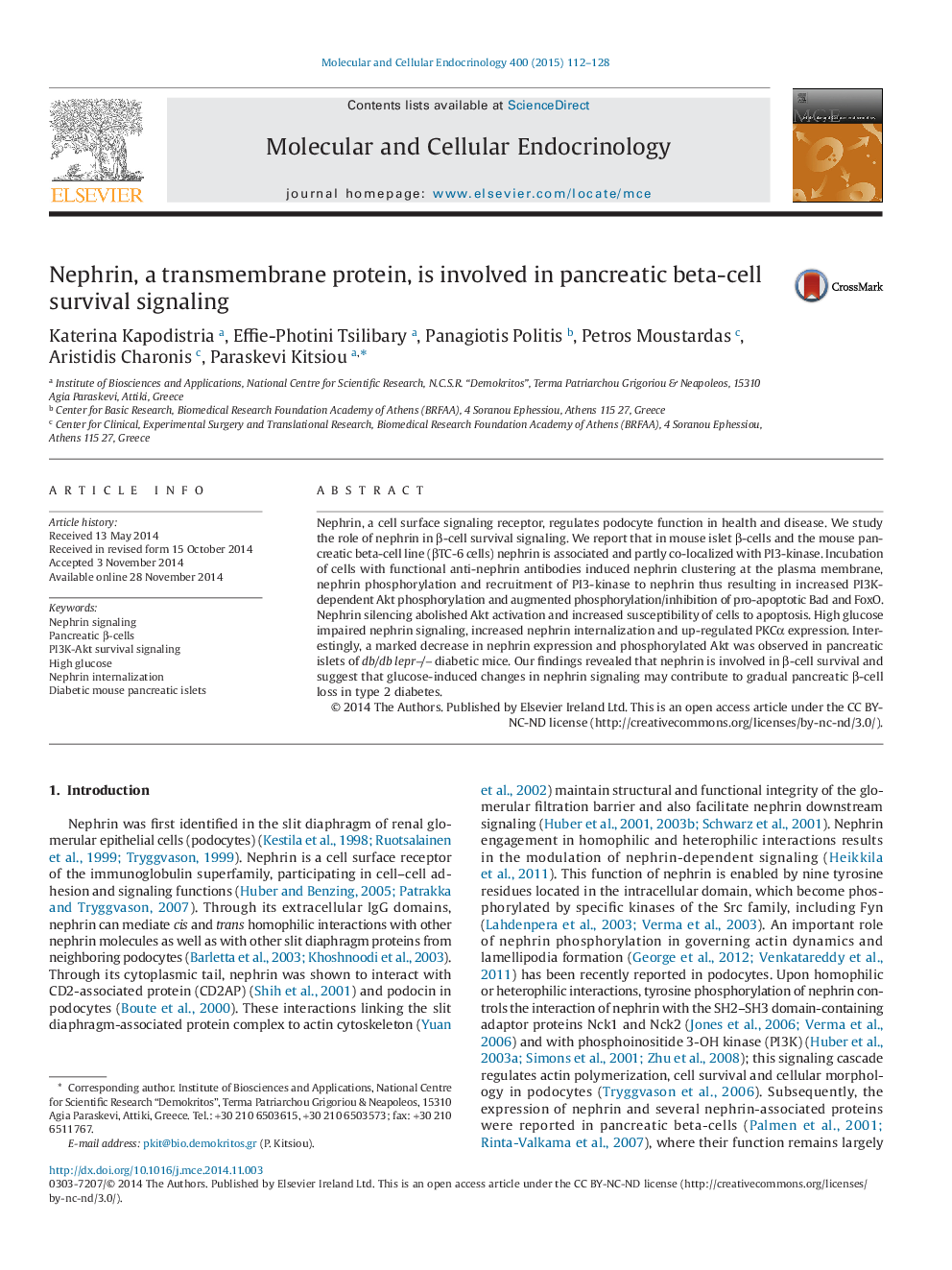| Article ID | Journal | Published Year | Pages | File Type |
|---|---|---|---|---|
| 8477139 | Molecular and Cellular Endocrinology | 2015 | 17 Pages |
Abstract
Nephrin, a cell surface signaling receptor, regulates podocyte function in health and disease. We study the role of nephrin in β-cell survival signaling. We report that in mouse islet β-cells and the mouse pancreatic beta-cell line (βTC-6 cells) nephrin is associated and partly co-localized with PI3-kinase. Incubation of cells with functional anti-nephrin antibodies induced nephrin clustering at the plasma membrane, nephrin phosphorylation and recruitment of PI3-kinase to nephrin thus resulting in increased PI3K-dependent Akt phosphorylation and augmented phosphorylation/inhibition of pro-apoptotic Bad and FoxO. Nephrin silencing abolished Akt activation and increased susceptibility of cells to apoptosis. High glucose impaired nephrin signaling, increased nephrin internalization and up-regulated PKCα expression. Interestingly, a marked decrease in nephrin expression and phosphorylated Akt was observed in pancreatic islets of db/db leprâ/â diabetic mice. Our findings revealed that nephrin is involved in β-cell survival and suggest that glucose-induced changes in nephrin signaling may contribute to gradual pancreatic β-cell loss in type 2 diabetes.
Keywords
Related Topics
Life Sciences
Biochemistry, Genetics and Molecular Biology
Cell Biology
Authors
Katerina Kapodistria, Effie-Photini Tsilibary, Panagiotis Politis, Petros Moustardas, Aristidis Charonis, Paraskevi Kitsiou,
